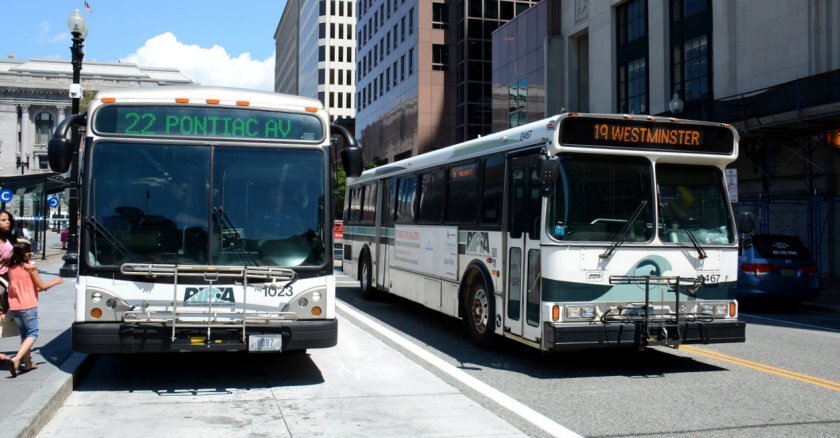
In late September, the Rhode Island Public Transit Authority announced that it would be cutting back service on 21 bus routes because of a “historic worker shortage.” Last April, Miami-Dade Transit postponed the launch of its redesigned “Better Bus Network” until 2023 because of a lack of operators to drive the new routes. In Baltimore, workforce shortages meant that in 2022 as many as one in five buses did not complete their scheduled runs, leaving passengers stranded.
The crisis has spared few agencies. According to an American Public Transportation Association survey conducted in February, more than nine in 10 public transit agencies are having difficulty hiring new employees, with the position of bus driver being the most difficult position to hire.
A key cause of the shortfall is the steady deterioration of one of transit’s most essential and frontline jobs. A new report from TransitCenter, Bus Operators in Crisis, details the challenges that drivers across the country are facing, and offers solutions that transit agencies and local leaders can enact.
The report finds that while driving a bus was once a ticket to a stable middle-class lifestyle, bus operator pay has not kept pace with the skyrocketing cost of living. At the same time, the job has become more difficult and dangerous. Operator assaults have increased, and daily exposure to COVID-19 has put workers at risk of serious illness. Rigid scheduling and overtime requirements make it difficult for junior operators with child- or elder-care responsibilities, and a shocking lack of restroom access for operators on route and break rooms at depots exacts a health toll.
The experience of Carmen Price-Edwards, a bus operator with the D.C. region’s Washington Metropolitan Area Transit Authority, is emblematic of many of the challenges operators face. She says she and other drivers sometimes face a hostile public and that agencies don’t always have their back when abusive episodes occur. She herself has been subjected to violent threats from passengers. “I don’t think transportation companies handle those instances well and protect the employee,” she says. She has also had to juggle child-care responsibilities with her job, carefully choosing her shifts to ensure she has time for her daughters. “We have families as well. I think the public forgets that.”
Transit agencies must initiate a suite of reforms if they hope to attract new entrants and retain existing employees. Agencies must raise wages for operators, and grant drivers greater flexibility to select the shifts and schedules that work for them. Agencies should also take steps to improve operator facilities and implement additional health and safety measures, including mental-health support. They must also create paths for operators to advance within their agencies, as well as apprenticeship programs to enable operators to learn new skills.

(Photo: RIPTA)
The operator crisis is not only about wages and benefits; it’s also about a shortage of dignity and respect. Operators are the backbone of the transit industry, and agencies must do everything in their power to make driving a bus a good, safe, rewarding job. Changing what can often be an adversarial relationship between workers and management is an important first step.
Operator shortfalls and their accompanying transit service disruptions will persist unless agencies address the underlying problems with the job. If we wish to see a thriving transit industry that keeps our cities moving, our bus drivers must be held in esteem, treated with respect and dealt with fairly.
David Bragdon is the executive director of TransitCenter, an independent foundation that works to improve transit across the country through grant-making, research and advocacy. John Costa is the international president of the Amalgamated Transit Union, the largest labor union representing transit and allied workers in the U.S. and Canada.
Governing's opinion columns reflect the views of their authors and not necessarily those of Governing's editors or management.
Related Content












